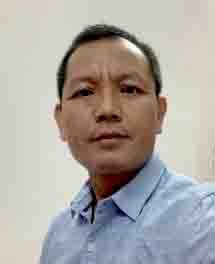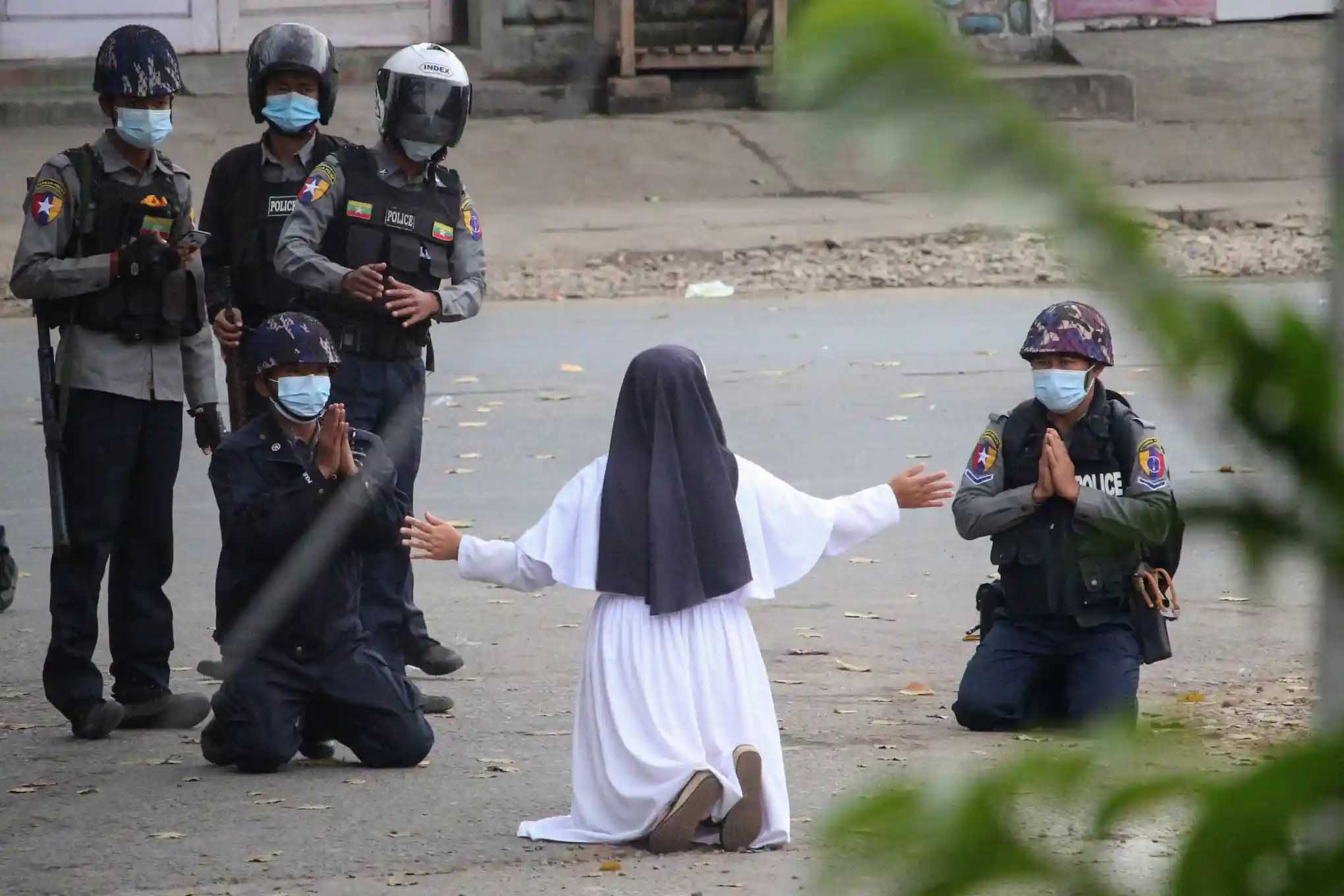The question about peace is a hot topic for discussion – especially during ethnic clashes, military operations, ambuscades, inter-state boundary disputes, arrests, deaths. Some people may opine that peace within is enough even if there is no peace outside. The presence of peace can reinvent our culture, society and the world as a whole. The components of peace include the head and the heart. Mere knowledge about the necessity of peace remains at the head level. Mere emotion for peace is just an expression of the heart. But we require a balanced blend of the head and the heart, leading to reason and affection, focusing on ‘empathy’. Peace is achievable through reconciliation and the democratisation of peace itself.
PEACEKEEPERS
UN Peacekeeping forces help countries navigate the difficult path from conflict to peace. It has unique strengths, including legitimacy, burden sharing, and an ability to deploy troops and police worldwide, integrating them with civilian peacekeepers to address a range of mandates set by the UN Security Council and General Assembly. These men and women are mainly from other countries and serve for a while. UN Peacekeeping forces are trained as peacekeepers. Once their service period expires, they are back in their respective countries. Ultimately, peace or no peace lies in the hands of the natives. We cannot expect genuine peace from peacekeepers. We need native peacemakers for peace.
PEACEMAKERS
The year 2021 has been significantly marked by the military coup in Myanmar (1 February) and the Taliban taking over Afghanistan (15 August). This year BBC 100 Women made the unprecedented decision to devote half of the list to women from one country – Afghanistan. Recent deaths and displacement have made headlines and left millions of Afghans questioning their future. Human Rights groups have spoken up in fear that women’s freedom could erode further under the Taliban regime.
Sister Ann Rose Nu Tawng, the Catholic nun, working in Kachin state, became a symbol of Myanmar’s protests following the military takeover when she knelt in front of police to save protesters taking shelter in the Church. In March 2021, she spread her arms wide, facing heavily armed police officers. She did what she did to protect civilians, especially children. In one of her interviews, she said, “I have witnessed with a broken heart what happened in Myanmar. If I were able to do something, I would release all people detained in prisons without justification and would make people equal without any discrimination.” She is a living peacemaker, ready to give up her life for others. g
GREEN PARTIES
A Green party is a member of the Global Greens, through one of the four regional Green federations, covering Africa, America, Asia-Pacific and Europe (Garhrton, 2015). The first partly based upon Green thinking was the New Values Pary of New Zealand, founded in 1972. The Green parties around the globe propagate the message that the world is now in a state of crisis as never before – accelerating climate change, deforestation, overexploitation of natural resources, growing inequalities, increasingly precarious economic model. Global peace and prosperity can come through the judicious use of natural resources. Nature is a sign of peace. Disturbance in nature creates turbulence in human lives, thereby creating chaos. The future we want is possible with the present action we perform. Environmental-friendly behaviour is a must. We need an environment-conscious Government for efficient and sustainable livelihood.
LOCAL INITIATIVES
The terms like ceasefire, suspension of operation, political negotiation, and established institutions like Police, Army, Paramilitary Forces, etc., aim to maintain law and order. The Armed Forces (Special Powers) Act, 1958, would not be needed if the natives of the states were peaceful peacekeepers and peacemakers. AFSPA is just a medium in maintaining or keeping peace in North East India, not a peacemaking mechanism. Despite its long claws of suspicion, AFSPA exists in some disturbed areas of North East India. On the retrospective side: as long as gun culture exists, extortions, illegal taxes on highways, percentage cuts on projects and salary, corruption in job appointments, we must admit that our society is not in peace and not moving toward it either. It is high time we move from mere peacekeepers to peacemakers for our present and future. In reality, neither the Central Government nor any established force can bring peace in our society unless we consciously (individually) opt for peace every minute. Each of us needs to be a peacemaker for a peaceful North East India.
We honestly require an attitudinal revolution and evolution towards genuine peace. We need new thinking, a sense of realism about the threats to peace, and actual peace processes. Mere peacekeeping is not enough; we need peacemakers – in religion and politics. It’s time to oust pseudo-peacekeepers and pseudo-peacemakers. Many people amongst us have opted (consciously or unconsciously) to be peace-destroyers. Few are authentic peacemakers, and the majority are mere spectators of what is happening (neither peacekeepers nor peacemakers). Unless we all participate in the peace process, peace will be far from us, and we will be in pieces.

The author is a PhD research scholar, Department of Sociology and Social Work, CHRIST (Deemed to be University), Bangalore, Karnataka, India. Email: paulhowkeep20@gmail.com











